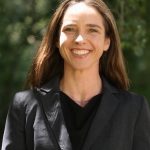The Trump Administration: Implications for Energy and Climate — A Bipartisan Discussion

- This event has passed.
What will US energy policy under a Trump administration — and Republican majorities in both the House and Senate — look like? And what are the implications for U.S. and international efforts to address climate change?
The Steyer-Taylor Center for Energy Policy and Finance convened a panel of experts on Tuesday November 29 for a bipartisan discussion exploring these questions and more.
Speakers:

Jeremy Carl is a research fellow at the Hoover Institution whose work focuses on energy and environmental policy, with particular emphasis on energy security, climate policy, and global fossil fuel markets. In addition, he writes extensively on US-India relations and Indian politics. Before coming to Stanford, he was a research fellow in resource and development economics at the Energy and Resources Institute (TERI), India’s leading energy and environmental policy organization. He is the editor of Conversations about Energy: How the Experts See America’s Energy Choices, and his work has appeared in numerous publications including the Journal of Energy Security, Energy Security Challenges for the 21st Century, Natural Resources and Sustainable Development, and Papers on International Environmental Negotiation. In addition to his work on energy, the environment, and India, Jeremy has written about a variety of other issues related to U.S. politics and public policy; Jeremy’s work has been featured in and cited by the New York Times, Wall Street Journal, San Francisco Chronicle, Newsweek, South China Morning Post, Indian Express, and many other leading newspapers and magazines. He has advised and assisted numerous groups including the World Bank, the United Nations, and the staff of the U.S. Congress. Jeremy received a BA with distinction from Yale University. He holds an MPA from the Kennedy School of Government at Harvard University and did doctoral work at Stanford University, where he was a Packard Foundation Stanford Graduate Fellow.

Katharine Mach is a Senior Research Scientist at Stanford University and a Visiting Investigator at the Carnegie Institution for Science. She leads the Stanford Environment Assessment Facility (SEAF). Advancing foundations for action, her research is focused on integrative assessment of climate change risks and response options. The goal is innovating and evaluating new approaches to assessment, simultaneously applying them to inform decisions and policy. Priorities include advancing methods for integrating evidence, for applying expert judgment, and for communicating resulting syntheses of knowledge. From 2010 until 2015, Dr. Mach co-directed the scientific activities of Working Group II of the Intergovernmental Panel on Climate Change, which focuses on impacts, adaptation, and vulnerability. This work culminated in the IPCC’s Fifth Assessment Report and its Special Report on Managing the Risks of Extreme Events and Disasters to Advance Climate Change Adaptation. The associated global scientific collaborations have supported diverse climate policies and actions, including the Paris Agreement. Dr. Mach received her PhD from Stanford University and AB from Harvard College.

Arun Majumdar is the Jay Precourt Provostial Chair Professor at Stanford University, where he serves on the faculty of the Department of Mechanical Engineering and is a Senior Fellow of the Precourt Institute for Energy. Prior to joining Stanford, he was the Vice President for Energy at Google, where he created several energy technology initiatives and advised the company on its broader energy strategy. He continues to be a consultant to Google on energy. In October 2009, Dr. Arun Majumdar was nominated by President Obama and confirmed by the Senate to become the Founding Director of the Advanced Research Projects Agency – Energy (ARPA-E), where he served till June 2012. Between March 2011 and June 2012, Dr. Majumdar also served as the Acting Under Secretary of Energy, and a Senior Advisor to the Secretary of Energy. Prior to joining the Department of Energy, Dr. Majumdar was the Almy and Agnes Maynard Chair Professor of Mechanical Engineering and Materials Science and Engineering at the University of California, Berkeley and the Associate Laboratory Director for Energy and Environment at Lawrence Berkeley National Laboratory. His research career includes the science and engineering of nanoscale materials and devices as well as large engineered systems. Dr. Majumdar is a member of the National Academy of Engineering and the American Academy of Arts and Sciences. He received his bachelor’s degree in Mechanical Engineering at the Indian Institute of Technology, Bombay in 1985 and his Ph.D. from the University of California, Berkeley in 1989. He currently serves on the US Secretary of Energy’s Advisory Board, the Council for the National Academy of Engineering and the Electric Power Research Institute, as well as the Science Board of the Stanford Linear Accelerator Center (SLAC) and the Oak Ridge National Laboratory. He is a member of the International Advisory Panel for Energy of the Singapore Ministry of Trade and Industry and the US delegation for the US-India Track II dialogue on climate change and energy.

Dan Reicher is executive director of the Steyer-Taylor Center for Energy Policy and Finance at Stanford, a joint center of the Stanford Graduate School of Business and Stanford Law School, where he also holds faculty positions. Reicher has more than 25 years of experience in energy and environmental policy, finance and technology. He was a member of President Obama’s Transition Team, assistant secretary of energy in the Clinton administration and a staff member of President Carter’s Commission on the Accident at Three Mile Island. Reicher came to Stanford in 2011 from Google, where he was director of Climate Change and Energy Initiatives. Prior to joining Google, he was president and co-founder of New Energy Capital Corp., a private equity firm funded by the California State Teachers Retirement System and Vantage Point Venture Partners to invest in clean energy projects. He was also executive vice president of Northern Power Systems, one of the oldest renewable energy companies in the U.S. and recipient of significant venture capital investment. Reicher earned a BA in biology from Dartmouth College and a JD from Stanford Law School. He also studied at the Harvard Kennedy School of Government and at MIT.

Michael Wara is an expert on energy and environmental law, Michael Wara’s research focuses on climate and electricity policy. Professor Wara’s current scholarship lies at the intersection between environmental law, energy law, international relations, atmospheric science, and technology policy. Professor Wara, JD ’06, was formerly a geochemist and climate scientist and has published work on the history of the El Niño/La Niña system and its response to changing climates, especially those warmer than today. The results of his scientific research have been published in premier scientific journals, including Science and Nature. Professor Wara joined Stanford Law in 2007 as a research fellow in environmental law and as a lecturer in law. Previously, he was an associate in Holland & Knight’s Government Practice Group, where his practice focused on climate change, land use, and environmental law. Professor Wara is a research fellow at the Program in Energy and Sustainable Development in Stanford’s Freeman Spogli Institute for International Studies, a Faculty Fellow at the Steyer-Taylor Center for Energy Policy and Finance, and a Center Fellow at the Woods Institute for the Environment.
